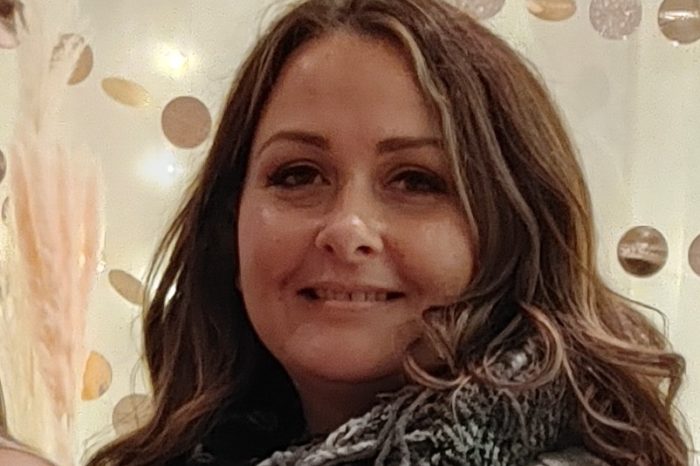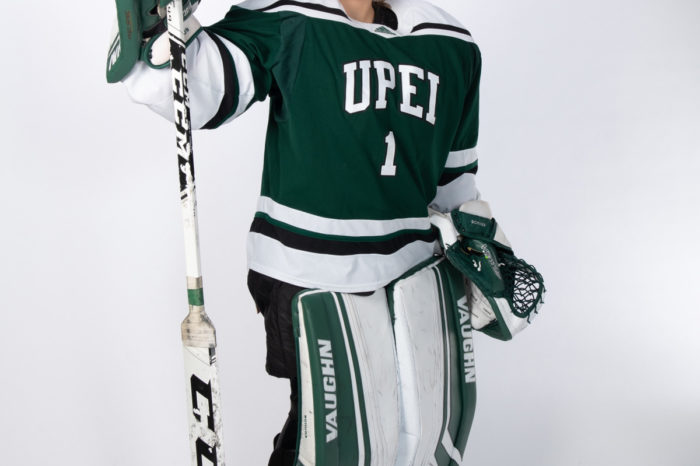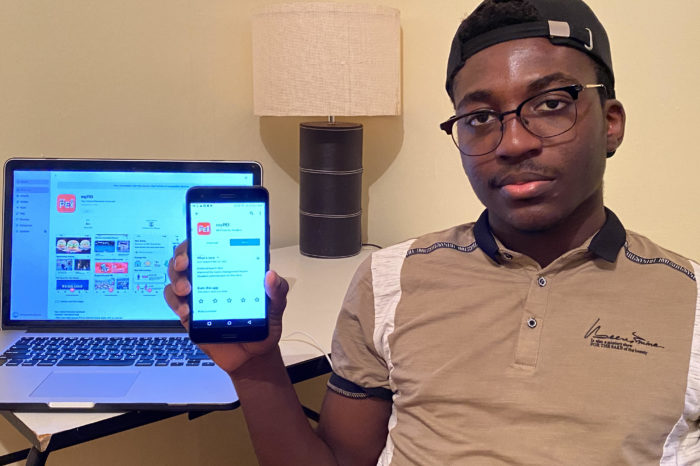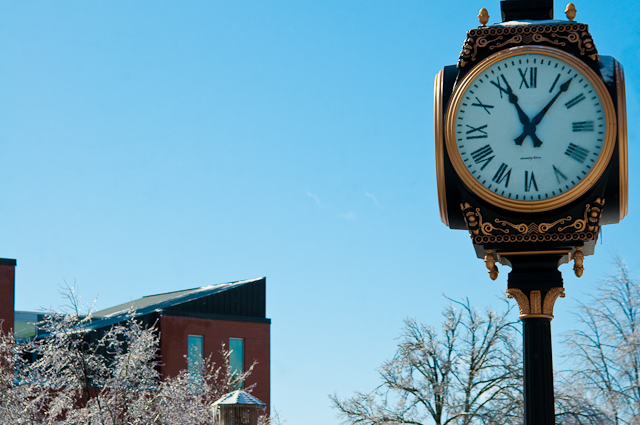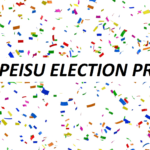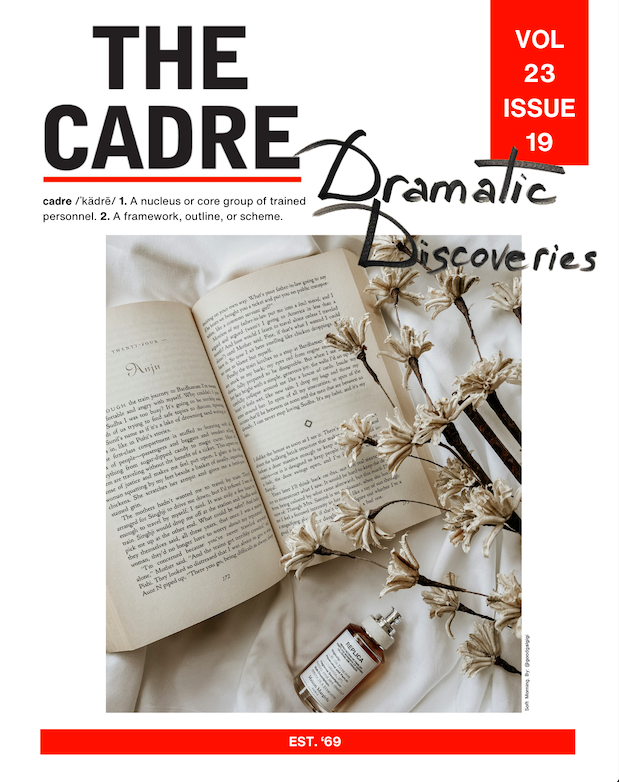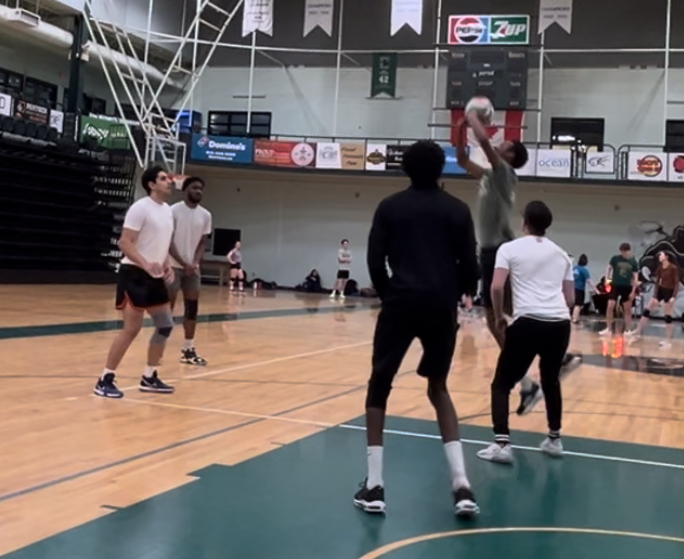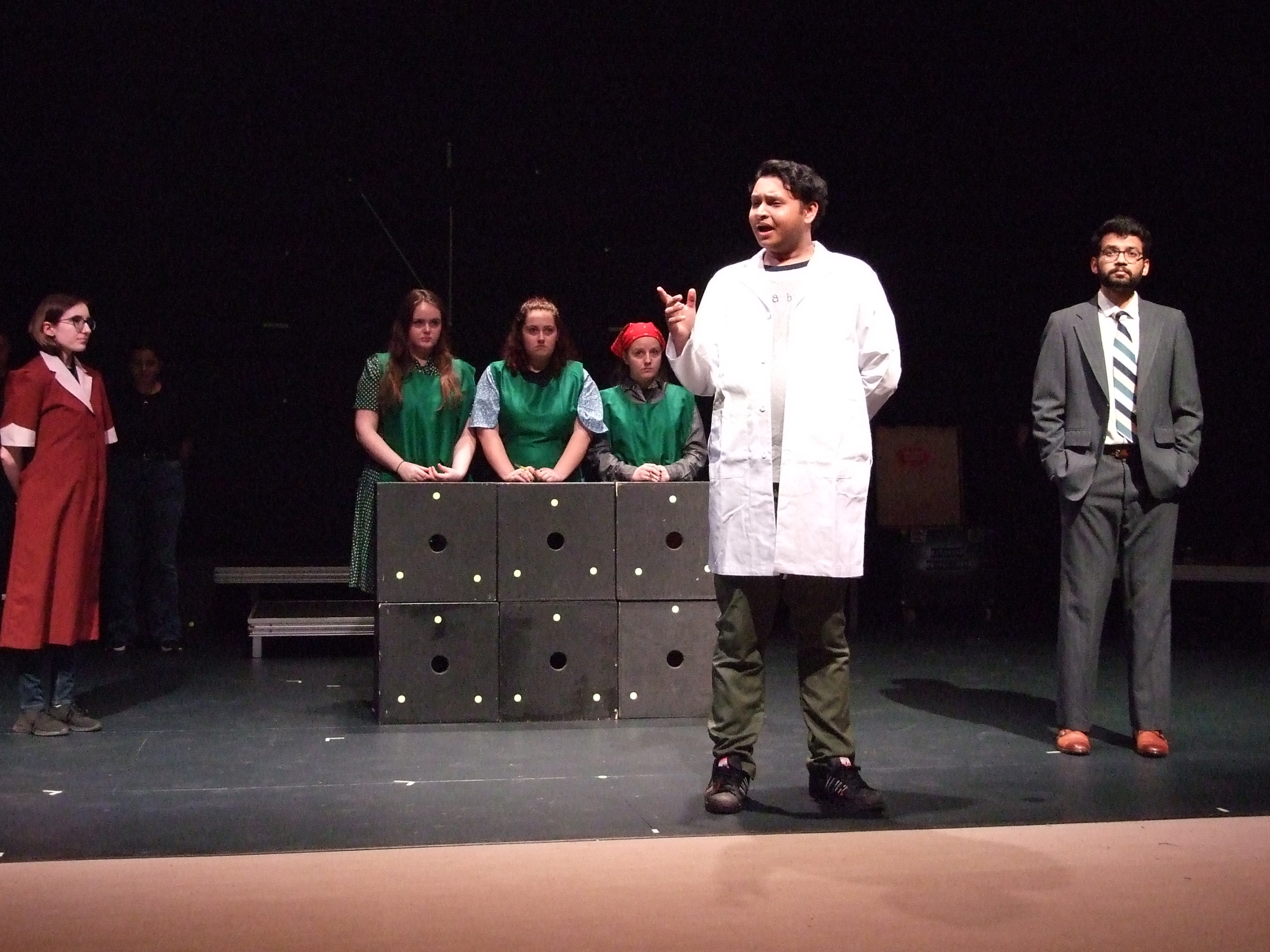Unless you’ve been living under a rock, you’ve likely noticed that it’s election season at UPEI. Whether or not you think the SU matters, the students you elect will be entrusted to manage hundreds of thousands of student dollars and act as your voice to the university and government. Accordingly, it is important you elect the candidates who will best represent your interests.
The 2018-19 academic year will be an important one for the SU. Many common themes arose during the campaign period, including the importance of properly executing the renovation and rebranding of The Wave, the need to build a more inclusive Student Union, and ensuring that students vote and are heard during upcoming municipal and provincial elections.
The Cadre interviewed each executive candidate to talk about their platform and challenged them on their understanding of the issues they would face if elected. These interviews form the basis of our election profiles.
At the conclusion of our profiles, The Cadre’s panelists have provided a list of endorsements based on who they think would be the best choice for each role. Nevertheless, we encourage students to read each candidate’s platform and speak to them to further inform their vote. Just don’t vote for someone because they gave you candy, okay?
Students can vote online for their representatives March 6th and March 7th via myUPEI.
Panelists
|
Adi Vella |
Dan Timen |
| Allison O’Brien Features Editor |
Melyssa Weeks |
President
The president is the face of the Student Union. Of all the executives, the president has the most freedom in choosing the issues they will tackle during their term. They are responsible for providing strategic direction and leadership to the organization while representing students on a number of external bodies, including UPEI’s Board of Governors and Senate.
William McGuigan

Photo: Will McGuigan
William McGuigan has had a relatively quiet and smooth year as the SU’s affable VP Finance and offers more of the same with a safe, achievable platform.
McGuigan self-admitted number one priority is the SU’s student centre refresh, a $410,000 building update that includes a renovation of The Wave. McGuigan intends to rebrand the new business to make it relevant to students’ university experience. He added that returning students as well as alumni will be consulted to inform branding decisions for the new business. While he was a little spotty on specifics, he’s the only presidential candidate to include it in their platform.
McGuigan’s platform touches on external advocacy, albeit generically. He said that he intends to work along with the VPAX to ensure that student issues are effectively communicated at the provincial and municipal level, which would be expected of any SU president. The only specific advocacy issue raised by McGuigan was the lack of student financial aid for graduate students. He also intends to work with with Elections PEI to have a polling station on campus to encourage more youth to vote, although it’s unclear how many students would actually be able to vote at this polling station during a provincial election.
McGuigan wants to address the crosswalk between UPEI’s southwest entrance and Brown’s Court. He hopes to work with the provincial department of transportation and municipal authorities to increase the safety of pedestrians crossing that road, possibly by creating an intermittent four-way stop.
McGuigan, who is registered with Accessibility Services, plans to implement a campaign that would highlight the services offered by the department on campus. McGuigan envisions this campaign will engage not just students but staff and faculty as well, arguing that involving staff and faculty will draw attention to student needs that are often ignored. He says that such a campaign will ultimately lead to better outcomes for student accessibility. This comes across as a unique twist on past accessibility campaigns.
To improve transparency, McGuigan would like to make the results of Council’s executive evaluations public. When asked about his past reservations about making them public, McGuigan was largely vague, only saying that there was a fine balance that needed to be achieved between executives’ status as both elected officials and employees.
In addition to the results being made public, McGuigan is proposing an additional system whereby executives and councillors would be evaluated through an evaluation survey made available to all students. However, it was uncertain from his interview how results of the student evaluation would be applied on a practical level.
McGuigan has chosen to campaign on issues that he is most familiar and comfortable with. While areas of his platform suffer from being slightly too plain or vague on the implementation side, McGuigan is the only candidate to present a vision (albeit a foggy one) for the rebranding of the campus pub, a significant project for whomever wins.
He is a relatively harmless choice for president and one you shouldn’t expect to rock the boat, for better or for worse.
Selected Qualifications:
- 2017-18 UPEISU VP Finance
- Former UPEI Business Society first-year representative
- Former residence student
Justin Clory

Graphic: Justin Clory
On his third kick at the can, presidential candidate Justin Clory presents some interesting ideas to improve the SU, albeit expensive ones in some instances.
If elected, Clory would like to create a new Vice President Academic position. Clory views the current position of Vice President Academic & External leaning heavily toward external advocacy at the expense of academic advocacy. He says that splitting the portfolio would be an effective way to ensure academic work gets the attention it deserves. While that’s a sensible point, Clory would have to overcome a few hurdles in its implementation: it would cost at least $18,000 to have it set up like other executive positions, and since the composition of Council is outlined in the SU’s constitution, a successful student referendum would be required to implement it.
Clory’s platform calls for the creation of a diversity report that would measure representation and help the SU identify underrepresentation issues (the SU currently has a policy in place to collect representation data). In his interview Clory said, he was under the impression that there wasn’t any representation data collection being done. He argued that representation data could be used to inform engagement initiatives; however, he was hazy in explaining how he would act on the data.
Clory would like to see improved mental health resources on campus. He had heard positive remarks about the AVC’s new health and wellness coordinator, and also highlighted mandatory mental health education sessions for engineering students. He would like implement the education sessions more broadly across all University programs, saying it would be more cost effective than hiring new counsellors.
Regarding campus Indigenization, Clory proposes incorporating course content or a requirement for a mandatory course addressing Indigenous issues across all programs. He also proposed creating a document that highlights Indigenous issues in collaboration with the Mawi’Omi Centre.
Clory would like to create a fund to help students to run their own advocacy efforts. While his focus seems to be on efforts relating to marginalized and discriminated groups, Clory mentioned that the funding could be used by other groups like OurTurn UPEI for their advocacy purposes. Clory did not propose a price tag for the fund.
Clory also wants to improve transparency by making the results of executive evaluations public and by livestreaming Council meetings, which he’d move to McMillan Hall. In response to potential logistical issues arising from students using the space before and during meetings, Clory said the students would simply be asked to leave the room for any confidential Council sessions, similar to what happens at the PEI legislature. Public results and live-streamed meetings would be positive advances in transparency at the SU, although we’re not convinced that meetings in McMillan Hall would have the same effect.
Clory is well-versed on the issues facing the SU and has a wide-reaching platform. Although the price tag associated with some promises might challenge their odds of implementation, Clory is still a solid choice for President.
Selected Qualifications:
- SU Councillor of the Year (2016-17)
- Past member of SU Advocacy Team
- Founder of the Queer Collective
Vice President Academic & External
The Vice President Academic & External is responsible for advocating on academic issues at UPEI and on external issues to the various levels of government. They serve as a student representative on the UPEI Senate and as the primary delegate to the SU’s external advocacy groups.
Emma Drake

Photo: Emma Drake
Emma Drake’s thoughtful and well-researched platform, coupled with her approachable and passionate personality, makes her an excellent fit for the role of VPAX. While Drake is only in her first year, her knowledge and investment in the portfolio is impressive.
Drake’s first platform point, Open Educational Resources, is a current advocacy goal that has seen little progress this past year. Drake’s goal at the end of her term as VPAX is to expand the use of OERs into more introductory courses at UPEI, and she has already gotten started by reaching out to the Open Textbook Project on campus to discuss partnering with them to advocate for federal funding for OERs.
Drake plans on bringing back Get Out the Vote, a successful campaign implemented by the SU in 2015 to encourage students to vote – this time, in the municipal and (possibly) provincial election. She highlights the importance of teaching students that municipal and provincial elections are directly related to student issues, and suggests hosting a panel discussion that will directly inform students why they should be engaged in the coming elections.
Drake’s strongest platform point is to reduce underrepresentation in the SU. She proposes introducing the STRIDE Program at UPEI, which would instill the confidence students need to run for student government. She specifically mentions how the program will equip women and international students, and if the program were successful, it would fix a long-time problem of exclusivity and underrepresentation in the SU. Her plan to find students to participate in the program include effective communications and going to first-year classes to speak about the program.
While we admire Drake’s efforts to diversify the SU, we were disappointed that Drake didn’t mention any desire to specifically Indigenize the SU, nor did she mention a desire for the STRIDE Program to specifically connect with Indigenous students.
One of Drake’s weaker platform points, the consultations committee, proposes creating a group of students at large who will help the VPAX identify current student issues on campus and how the SU could improve their lobbying efforts for those student issues. However, this committee doesn’t fully differentiate itself from the Academic and External Affairs Committee, whose mandate is very similar. The difference is that Consultations Committee would meet once a month and is composed of students at large, compared to AxComm which meets once a year and is composed of Council members. We would prefer to see Drake modify the current AxComm, similar to what her opponent has suggested in her respective platform.
Drake has proved that she is willing to do the nitty-gritty work that it takes to be a successful Vice President Academic and External. She consulted with three previous VPAX execs while preparing her platform, and is constantly looking to liaise with other SU’s across the country. Her boots-to-the-ground attitude gives our cynical hearts hope for the state of our SU.
Selected Qualifications:
- UPEISU Associate Director of Communications
- Member of Advocacy Team
Sweta Daboo

Photo: Sweta Daboo
Sweta Daboo is a second-year Biology student who has shown involvement with the SU and as a volunteer on campus throughout her two years at UPEI. Her acknowledgement of student issues, both in her platform and her interview, makes her a suitable candidate for the position of VPAX.
In her interview, Daboo outlined some key solutions to the issues she raises on her platform. One issue she mentioned was the increasing student enrollment at UPEI, which has increased the amount of students waitlisted for courses. Daboo proposes that UPEI convert introductory first year courses to online courses to combat waitlist issues. Though this raises a financial issue with online courses costing $75 more, Daboo claims she will send out a survey to ask the students whether they would be willing to pay this fee.
Daboo touches on the benefits of Open Educational Resources (OERs), though her understanding of what they are isn’t exactly correct. OERs are open-source alternatives to textbooks used in some courses at UPEI, including introductory psychology courses. Daboo suggests using these resources to study independently to exempt yourself from a prerequisite of a higher level course. This could not only add to the waitlists of upper-level courses, but it would be unlikely that a faculty member would allow for students to skip courses simply because they have read an OER from the prerequisite course.
Daboo also speaks to the Student Opinion of Teaching Survey (SOTS) Committee saying that students are not prioritizing where their feedback goes. Currently, these surveys have two parts – a 1-5 scale questions section and a commentary section – but only the 1-5 questions are reaching the Dean and Chair. The commentary section could have an impact on how teaching styles and professors meet our needs as students. Daboo presents the idea of having a letter campaign to address this issue and get the student body involved.
In her platform, Daboo says she will work alongside the Career Services office to provide students with a greater variety of co-op positions for certain faculties where they are lacking. In her interview she speaks to the EAP internships program, claiming that it differs from other programs in that it would be available to students for not only the summer months but during the school semesters as well, providing students with hands on experience in their field as well as income during school to help offset bills and education costs. However, there are currently programs that do just that. UPEI offers a Co-operative Education program in select faculties that changes year to year depending on employer availability. Through Co-op, students can have a paid work term in the summer or in either school semester. Skills PEI also provides a similar program that helps current post-secondary students get experience in their field while they are finishing their studies.
In the external advocacy portion of her platform, Daboo acknowledges the upcoming municipal election; however, she has not addressed projects or issues that directly affect students other than the Indigenization of Island institutions, which, in addition to affecting only a small portion of UPEI’s student population, is not a municipal issue as postsecondary institutions are a provincial responsibility. Provincially, Daboo claims she will “maintain relationships†with the parties on the island with no support on how she plans to do that, which is a part of the job description for the VPAX position anyway.
When asked about the future of the Mental Health Initiative Fund, Daboo simply expresses why it is important to have. She states in her platform that “mental health and sexual assault still significantly affect studentsâ€, but no solutions are proposed.
Daboo composed herself well during her interview, answering questions confidently but briefly. Although she addresses student issues and why they are important, she is lacking when it comes to solving those issues.
Selected Qualifications:
- UPEISU Ombudsperson
- UPEISU Street Team Committee
Vice President Student Life
The Vice President Student Life, affectionately known as VP Fun, is responsible for event programming, clubs, campaigns, and non-academic advocacy.
Caroline Simoes Correa

Photo: Caroline Simoes Correa
Caroline Simoes Correa brands her platform as an innovative one. While some of her points don’t quite meet that description, the ones that do open the door to interesting new possibilities for the SU.
Correa wants to bridge the gap between subpopulations of the student body and the Student Union. To accomplish this, Correa hopes to strengthen inclusivity efforts by working closely with the Director of Communications at the SU. While she spoke about her experience working as the coordinator of the Buddy Program, which pairs up international and domestic students, Correa didn’t connect it to any concrete actions she would take alongside the Director of Communications.
Regarding her plans for inclusive food options, Correa said she would like to focus on The Wave. She hopes to host certain events that would offer cuisines from different cultures. This would allow The Wave to temporarily add new food to the menu, with permanency as a longer-term goal. An ambitious goal like this will require a lot of coordination with The Wave, and may become pricey depending on the extent of the changes made.
Correa’s platform also calls for the return of the Future Executive Development Program, a club training program taken over by the IRO in 2017. Correa said she would reinstate the program at the SU while preserving a cultural sensitivity training session that was added during its time at the IRO and further adding a sexual harassment education session. Given the campus and broader social climate in 2018, the tackling of both issues are welcome additions.
Correa also wants to help clubs by offering advertising in social media and newsletters, although this has been long-standing ratification benefit. She also pledges to be swift in her correspondence with clubs, although this feels more like a basic job expectation than a platform point.
With campaigns, Correa seems to favour a long-term approach to campaigning. Correa said that while short campaigns won’t solve anything, campaigns spread out throughout the year offer the chance to periodically remind students of issues. While campaigns seem to struggle regardless of how they’re structured, it’s an interesting and unique approach that’s worth trying.
When selecting smaller events, Correa provided the safe response that she would like to consult with student groups via surveys and meetings to see what they would like.
To spice up events and event themes, Correa would adopt a do-it-yourself approach to event setups. Correa is cognizant that new setups might be more expensive; consequently, she plans to enlist student volunteers to assist her. However, her in-person explanation sounded less exciting than the one outlined in her platform.
Caroline Simoes Correa’s past experience makes her a reliable choice for VPSL. Some of her ideas would provide a spark to the SU’s ongoing work and her deep connections with the international student community would lend themselves well to her proposed inclusivity efforts.
Selected Qualifications:
- Buddy Program Coordinator
- 2017-18 UPEISU International Student Representative
- Student Assistant at the Recruitment and International Relations Office
Sarah Faith MacEachern

Photo: Sarah Faith MacEachern
Sarah Faith MacEachern brings relevant experience to the table at a time when the SU needs it. But, while her platform points are all well-intentioned, some would have benefited from more development.
A major point of MacEachern’s platform is increasing attendance and spirit at The Wave through improved communication. She said there is in-house data available on which social media platforms are most popular among students and that it should be considered when making marketing decisions. She also said The Wave should advertise differently than it has in the past, although she did not provide concrete examples as to what that would look like in practice.
To engage subpopulations on campus, MacEachern safely said she would reach out to different groups on campus and find out what sort of events they would like to host. With her experience at The Wave, MacEachern said she has a sense for what events would go well but acknowledges that it would not be easy to cater to every group and society. Despite that, MacEachern pointed out that The Wave still does its best to collaborate with different groups on campus and she was able to cite past successes in that respect.
MacEachern said she would like to revamp the clubs list on the SU website by adding descriptions to every club and society listed. She would also like to add resources to the page, such as guidelines for club executives. While the platform points reads as highly ambitious (and implicitly costly), her verbal explanation of what she hopes to do was much more muted.
MacEachern would like to address environmental sustainability through education and changes to the SU’s practices. She also claims there is more the University can do to tackle the issue and that the SU should play an active role in promoting positive change. While it’s a noble goal, it might disappoint students who were looking for more immediate student issues to be addressed through campaigns.
MacEachern is proposing changes to the way the SU handles workplace safety policy. Among the changes, she would like to see a neutral third party brought in to investigate sensitive workplace complaints. MacEachern says a external party would more adequately investigate workplace safety issues compared to internal staff, considering the close proximity that exists among SU staff. There’s no doubt the suggestion would inspire more confidence in the process and results of an investigation, but the cost of bringing on a third party to conduct one remains unclear.
MacEachern also plans to organize smaller events throughout the year, such as Mental Health Mondays, to ensure that mental health is an ongoing conversation throughout the year. Her ideas come across as good and easy ways to extend the conversation around mental health beyond other events like Mental Health Week and Stress Less Week.
While some of her ideas still need work, MacEachern extensive experience with The Wave would make her a dependable VPSL, especially as an event programmer.
Selected Qualifications:
- The Wave supervisor and trivia host
- New Student Orientation Captain
- Jack.Org Executive
Endorsements
The following are the endorsements of The Cadre’s panelists:
Adi Vella, Arts & Culture Editor
 President: Will McGuigan
President: Will McGuigan
McGuigan’s platform is realistic for his job experience. As VP Finance he has already worked on the student centre refresh and it would be an easy transition for him. He is also the stronger candidate on paper with the right experience for this office.
VPAX: Sweta Daboo/Emma Drake
Both candidates are equally well equipped for this office and they both have the right priorities on their campaign platforms.
VPSL: Sarah MacEachern
With her work experience at The Wave and know-how about events, I think she will perform well as VPSL.
Allison O’Brien, Features Editor
 President: Will McGuigan
President: Will McGuigan
Will has been a steady VP Finance and is the safe choice for President. He will have momentum on his side as he transitions into the new role.
VPAX: Emma Drake
Emma’s passion wins me over. She has researched everything and leaves no stone unturned.
VPSL: Caroline Simoes Correa/Sarah MacEachern
Each candidate is qualified with different though equally interesting platforms. I’d be happy to have either one as VPSL.
Melyssa Weeks, News Editor
 President: Will McGuigan
President: Will McGuigan
McGuigan addresses in his platform some projects and concerns that weren’t addressed by his opponent. His experience as VP Finance shows his dedication and ability to complete tasks – a good quality moving forward.
VPAX: Emma Drake
Though she is only in her first year at UPEI, Drake has proven to be involved on campus and with the students. In running for VPAX, Drake sought leadership from Taya Nabuurs, the current VPAX, and has shown passion towards providing solutions to the issues affecting students.
VPSL: Caroline Simoes Correa/Sarah MacEachern
Why: Both candidates are equally suitable for the position of VPSL. Each of them have their own ideas and opinions to bring to the SU.
Dan Timen, News Editor
 President: Will McGuigan
President: Will McGuigan
McGuigan’s proposed platform is not difficult to accomplish, and his time as VP Finance shows that he can execute the campus pub rebranding efficiently.
VPAX: Emma Drake/Sweta Daboo
Both candidates are suited for the position.
VPSL: Sarah MacEachern
MacEachern is well equipped to ensure that major events at The Wave succeed, and that clubs on campus will have equal success in hosting their own events with her guidance as VPSL.
